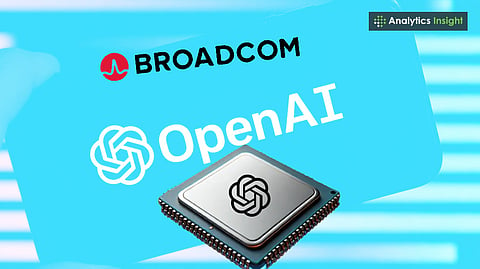

OpenAI will launch its first in-house AI chip in 2026 with the help of US semiconductor company Broadcom. The project marks a big step for the ChatGPT maker as it tries to control more of its own hardware and reduce reliance on external chip suppliers like NVIDIA.
Industry insiders state that the new AI chip will not go on sale to outside buyers at first. Instead, it will be used inside OpenAI’s systems to power training and daily operations. This move is designed to cut costs and manage the rising demand for computing power.
Broadcom’s chief executive, Hock Tan, hinted at this partnership when he revealed that his company had secured over 10 billion dollars in new AI orders from a fresh customer. While he did not name the buyer, many in the industry believe it to be OpenAI. Tan also said he expects AI-related sales to grow strongly in 2026 as a result.
This plan puts OpenAI in line with other big tech firms such as Amazon, Google and Meta. These companies already design their own custom chips to handle artificial intelligence work more efficiently. Building custom chips allows them to lower costs, speed up performance, and shape hardware to their specific needs.
Also Read: Alibaba Stock Analysis: Impact of AI Chip Testing on Market Performance
The new AI chip is expected to be made by Taiwan Semiconductor Manufacturing Company (TSMC), the world’s largest contract chipmaker. According to earlier reports, OpenAI has been finalizing the design and preparing it for production. Alongside this effort, OpenAI continues to use AMD and NVIDIA chips while building a more diverse supply chain.
The high-level processors are in growing demand, thanks to generative AI powering applications such as ChatGPT. While NVIDIA still maintains supremacy with its GPUs in that space, OpenAI's bold step is cementing a new dawn for the hardware-independent model. Building its own AI chip puts it in the position of being able to guard its performance, pricing, and supply stability.
Still, making chips is not easy. It requires high investment, long timelines, and technical risks. Other companies have faced challenges in meeting speed or efficiency goals when designing their own silicon. Regardless, this project demonstrates OpenAI's determination to prepare for the future with tools it can fully control.
By 2026, when its first AI chip arrives, the AI giant might make a huge impact on how systems run and improve cost efficiency to engage more directly with the existing competitors participating in the tech race.
